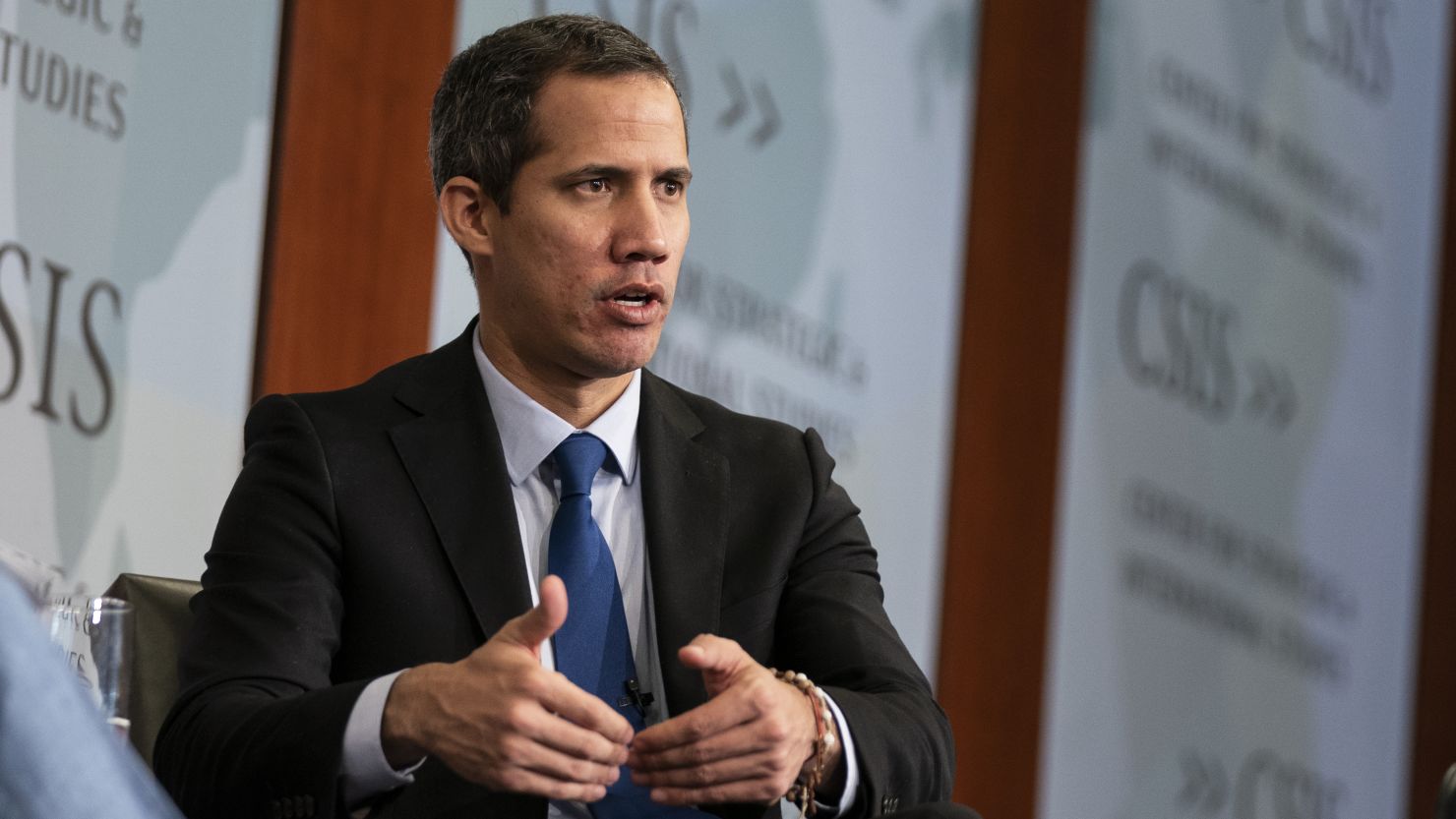Venezuelan authorities on Thursday issued an arrest warrant for opposition leader and former interim president Juan Guaido, who dismissed the move as politically motivated.
During a press conference in the capital Caracas, Attorney General Tarek William Saab alleged that Guaido had used the state-owned oil company PDVSA’s resources to finance himself and pay his legal expenses.
“Juan Guaido used PDVSA resources to finance himself, pay his legal expenses, and forced PDVSA to accept his financing terms. These decisions caused losses to the nation of $19 billion, resulting in the almost definitive loss of Citgo,” Saab said, adding that Venezuela will request a red notice from Interpol.
“For this reason, we have opened a new investigation against former deputy Juan Guaido, and we have requested an arrest warrant against him,” he said.
Guaido served as the interim president of Venezuela’s transitional government from 2019 until late 2022 – when he was ousted from his leadership role after struggling to make significant gains against the authoritarian regime of Venezuelan leader Nicolas Maduro.
This spring, Guaido traveled to Miami, where he has remained. Speaking to CNN on Friday, he said, “Of course, I want to be back in Venezuela, but at least here I am alive and free, which is not the same for many Venezuelans who are behind bars or have been murdered by the dictatorship.”
The allegations
Saab said the arrest warrant against Guaido will be for the alleged crimes of treason; usurpation of functions; profit or extraction of money, securities and public goods; money laundering; and association.
He also said that least 28 investigations are ongoing in the country against Guaido for a raft of alleged crimes including usurpation of functions, money laundering, terrorism, arms trafficking, and treason.
“Those who at some point believed in this guy and went out to march; they see that they found it to be a vulgar criminal of the worst caliber, robbing and kidnapping,” Saab said.
Guaido’s spokesperson declined to comment on the allegations, but during a live transmission on his Instagram account, Guaido described them as “false” and challenged President Maduro to submit to justice himself.
“This message goes to you, Maduro, tomorrow let’s meet at any prosecutor’s office in the US or, if you prefer, another jurisdiction, The Hague. We can then go directly to the jurisdiction that also points (to) you directly,” Guaido said.
In June, the International Criminal Court ruled that prosecutors should resume investigating alleged crimes against humanity in Venezuela by security forces under President Maduro.
“The question is, why now? Why did the dictatorship not do it before?” he said of the arrest warrant. “So no, Maduro, I did not allow you to kidnap me, I will not allow you to take away my voice, and I will continue to denounce you in all places where possible, as a criminal.”
An upcoming vote
Venezuela is due to hold a presidential vote in 2024, though critics have cast doubt on whether elections can be free and fair in the country’s repressive political climate.
Guaido called on his followers to vote in the upcoming opposition primary election on October 22, saying, “today the vote is kidnapped in Venezuela, but we have an opportunity to mobilize again to confront Nicolas Maduro.”
The US, which had long been a supporter of Guaido, has somewhat softened its stance toward Caracas as the region struggles with rising energy costs and hundreds of thousands of Venezuelan migrants.
On Thursday, senior officials in the Biden administration said the US will restart deporting Venezuelans directly to Venezuela in an attempt to curb the record influx of crossings at the US-Mexico border, marking a major shift in policy.
Venezuelans who cross the US-Mexico border unlawfully and lack a legal basis to remain in the US will be eligible for removal, the senior administration officials said, adding that Venezuela had agreed to accept back its nationals.
Secretary of State Antony Blinken called the new policy “a key piece” of the administration’s approach to migration. Advocacy groups however have slammed the shift as dangerous for deportees; the policy will “likely lead to unsafe returns,” Refugees International warned in a statement.
In his interview with CNN on Friday, Guaido said he didn’t believe that the deportation deal was connected to his arrest. However, he did say that it underlined Maduro’s interest in gaining international recognition as Venezuela’s head of state.
“They are not going to stop the migration situation just by stopping migration or connect flights. We need to put a stop to the regime and recover rights in Venezuela,” Guaidó said.
“The only thing Maduro is looking for is recognition, and even with these deportation flights, he’s going to spin them as de facto recognition for his regime. That’s what he gets from this,” he continued.
“We never expected that Venezuelan migrants would reach the US directly, on foot, from Venezuela. Those are thousands of miles of desperation through the jungle. But we need to change the situation in Venezuela, bringing the country back to democracy, if we want to solve the migration crisis.”
Reporting contributed by CNN’s Stefano Pozzebon in Bogota and Karol Suarez in Mexico City.

